
Expectations vs. reality of a Global Masters student at KI
New years greetings
Hello! Happy New Year to you all! With the holiday season over, classes back in session on campus, and the deadlines for applying to the Global Masters programs at Karolinska Institutet approaching, I am wishing everyone (an extra shoutout to those born in the year of the Dragon!) another year full of good fortune and prosperity. This time last year, my anxiety levels were constantly high while working on the KI application. For me, it involved a lot of overthinking and setting many expectations for myself on how I was going to excel and keep up amongst my talented peers, and within the prestige of KI in general.
In this post, I’ll be highlighting some of these expectations I had on the academic setting, my ability to take care of myself, networking, and social life, and discuss the realities of them (spoiler alert: they differ quite a bit!)
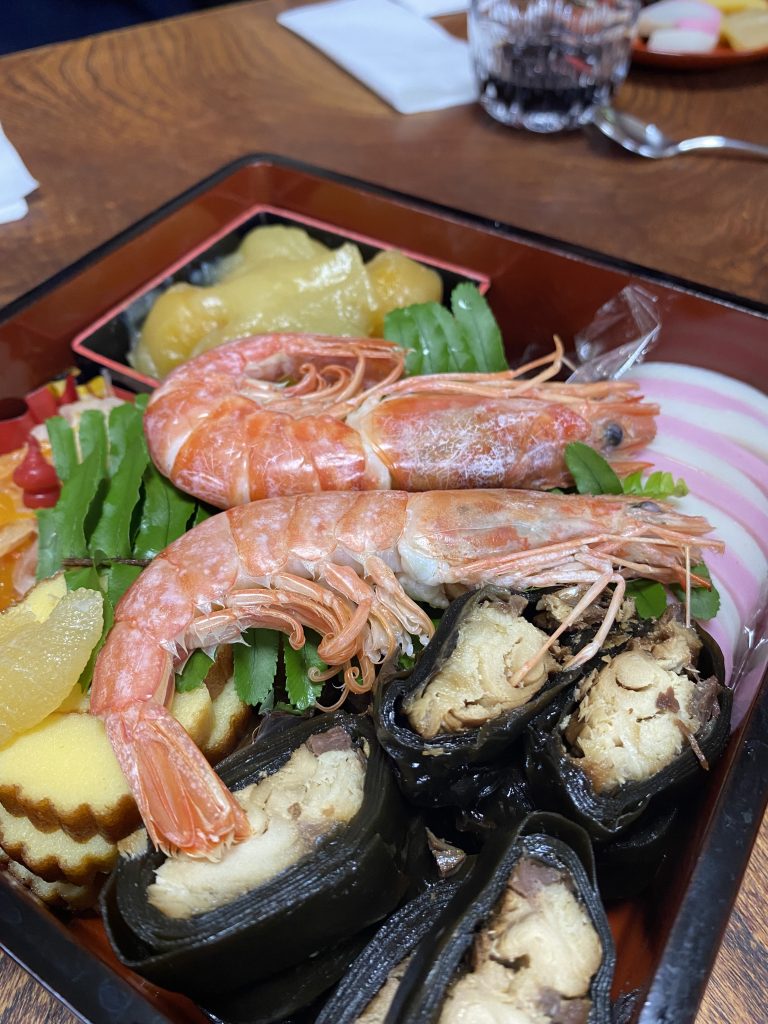
Academics
When I first got the news that I was admitted, I was filled with joy. I then realized I had never been a top-A student and wondered: what would I have to do to excel and keep up with the program content? Thus began my list of expectations that I set for myself. I expected myself (and everyone else) to always be on top of pre-class preparations. This included expecting myself to complete all the prerequisite reading material and exercises, to fully understand the nitty-gritty details of these materials, and take very legible, organized notes daily. Inside the classroom, I expected myself to fully focus during long lectures and finally break out of my shell (I have never been a fan of contributing to classroom-wide discussions) so that I could play an active role in classroom discussions.
In reality, I have difficulty paying attention to lectures before 10 AM and those that last longer than 50 minutes. There have probably been one but at most two lectures per course where I fully zone out for 20-40 minutes and later cannot recall that portion of the lecture. In terms of notetaking, my handwriting is not the best, jot many things down with no particular structure, and create prettier notes at a later date, usually after class or during exam preparation week.
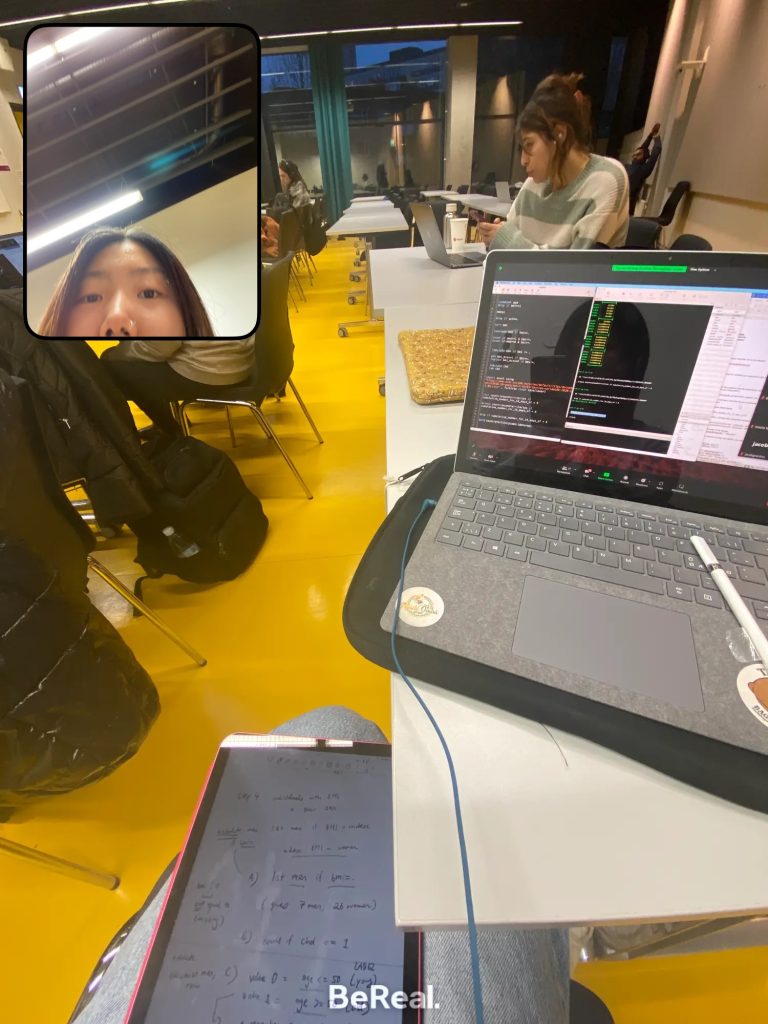
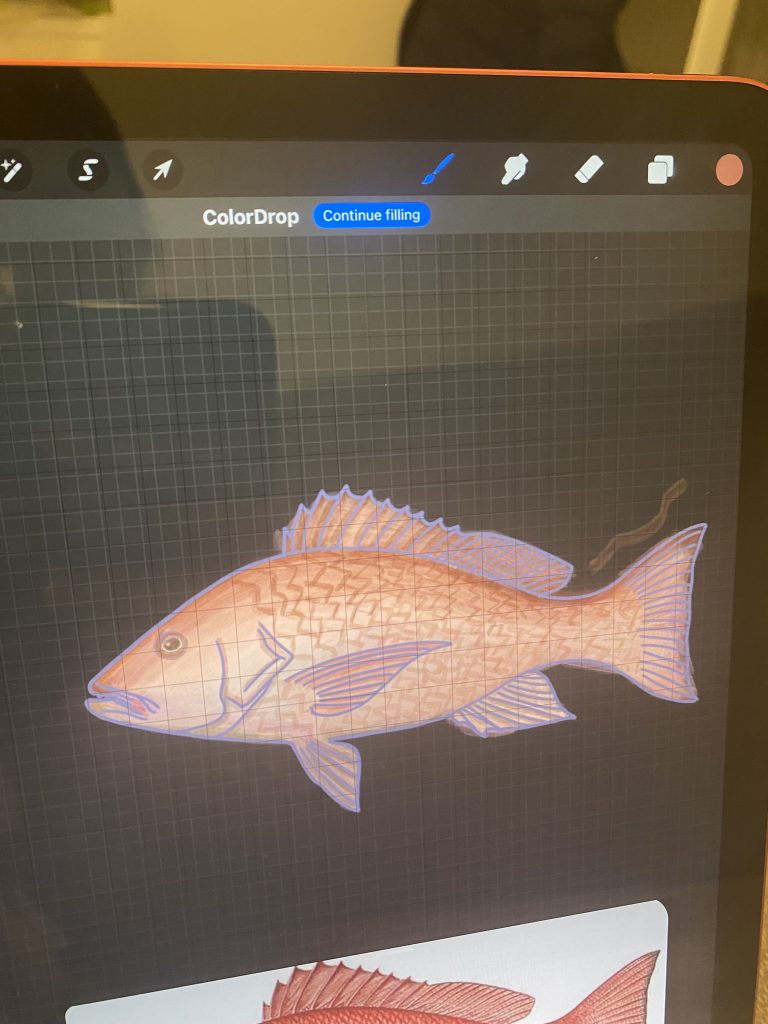
My prerequisite readings for each lecture have been done for the most part, be it on a train through the Netherlands, a 13-hour flight to Japan, or simply at the KI library. Where there is a will, there is a way for the most part! This is not to say that the readings are completed on a whim. I sometimes take longer than anticipated to really understand the content, as well as to highlight quotes and make notes from these readings.
Impostor Syndrome
At the same time that I feel inspired, I am sometimes intimidated when my peers contribute to classroom discussions with very nuanced, complex thoughts. I am particularly blown away by elaborative comments involving medical terminology. Sometimes I can get so intimidated that I end up feeling like I cannot measure up to my talented classmates, that I am not good enough to be in the classroom, and that I have ended up here purely by chance. I could spiral into a wormhole of insecurity when I am also reminded that I have no family members in academia, medical, or public health field. These combined feelings of self-doubt are traits of impostor syndrome, a very common experience in higher education (and it should be talked about more!).
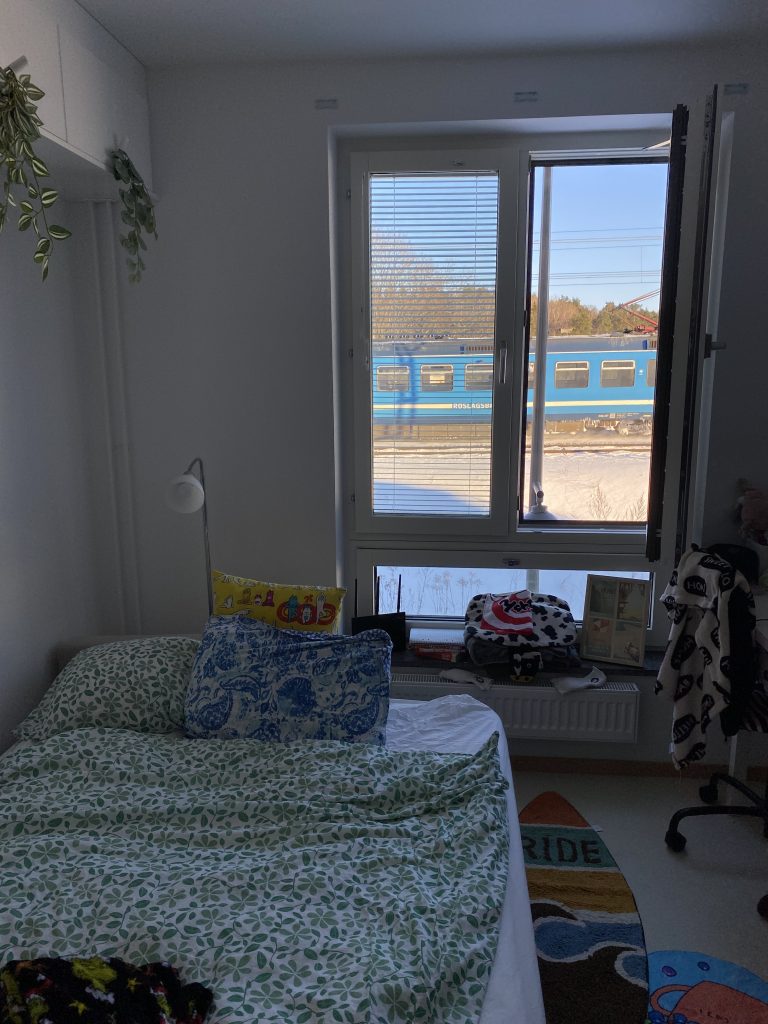

To mitigate this, I have taken time weekly to self-reflect on when I felt like an impostor (if any), what event(s) triggered those feelings, any sort of personal accomplishments achieved throughout the week, and end with a reminder that everyone is at different walks of life, and contributes to the classroom in an enriching way through different forms. It is hard to find the time and energy to follow this routine, and systematic support from institutions to address impostor syndrome may have larger benefits. But some of these personal practices have personally allowed me to become a little less harsh on myself, and have helped me build up some confidence so far.
Networking
During my application process, I remember scrolling through the different research groups housed in the Department of Global Public Health, taking notes on what research groups I was interested in, and getting myself even more hyped to attend KI. The expectation then was that I would magically become a charismatic social butterfly who would constantly network with faculty members and actively search for research groups. Obviously, this has not been the case (I can be very awkward in person!).
It is very normal for you to take your time in searching for research groups that interest you, and I don’t think many people start reaching out to any in their first semester. There is no need to rush towards projects just for the sake of wanting to be in a research group! Instead, I have realized that it is important to set realistic goals and plans to reach out if there is interest.
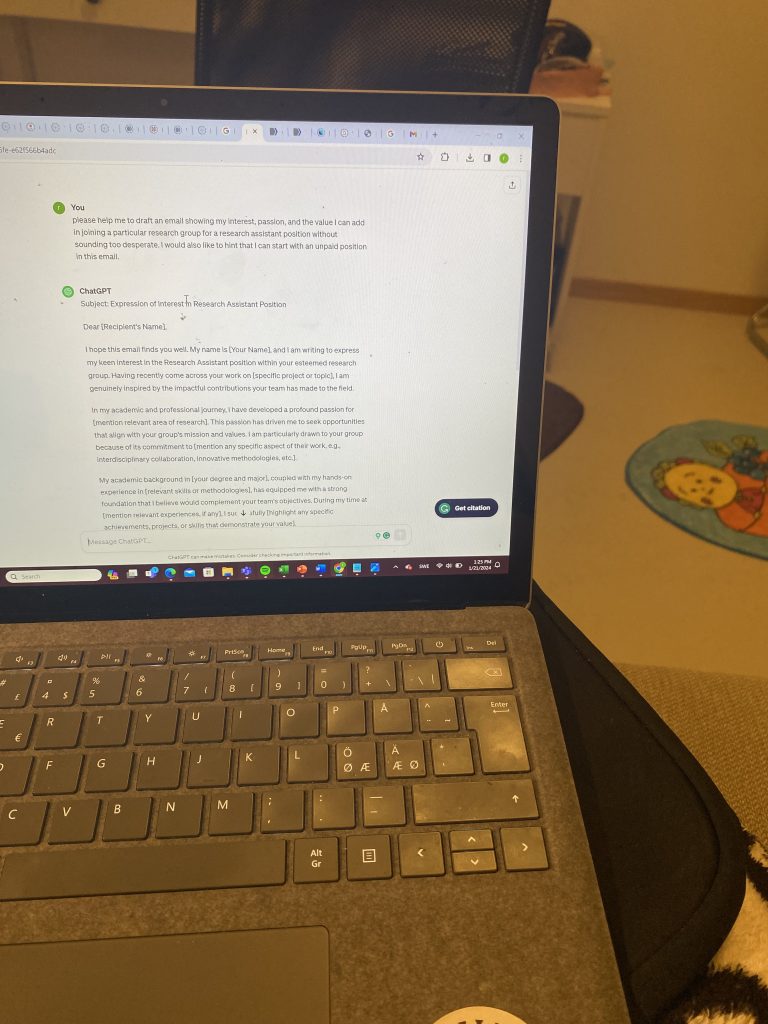
Right now, I am interested in about three research groups that all differ in their research areas quite substantially. I get excited thinking about these groups, but I am terrified of initiating any form of contact with the groups. So, a resolution for this year is to set a deadline to contact the groups in the next month, to be proactive when guest lecturers that present on topics I am interested in are scheduled in our courses, make it a goal to ask at least one question to them and to attend at least one seminar outside of my program. These all are realistic and not too intimidating on my end. For some examples of how past students have joined research groups, check out this blog post on how two Toxicology students became research assistants!
Adulting
Because I have lived away from home since high school, I didn’t expect many hiccups to my adulting routines that I have incorporated in the last few years (cleaning, grocery shopping, laundry, cooking, sleeping well, exercising, etc.). Overall, I am very much capable of completing all of the abovementioned tasks, but my weakest area would probably be my morning routine.
At the start of my first semester, I expected myself to get up 60-90 minutes before leaving the house to get ready daily, but this routine quickly crumbled along with my jetlag from moving across the Atlantic. I stayed up later, snoozed an extra time, and started leaving the house a few minutes later every day. For the majority of my first semester, I struggled with arriving at my morning lectures on time and tended to skip breakfast on most days. My breakfast and dinner routine also gets exponentially worse the closer it is to course examination week, as you may tell from the pictures of my meals getting progressively worse from left to right.

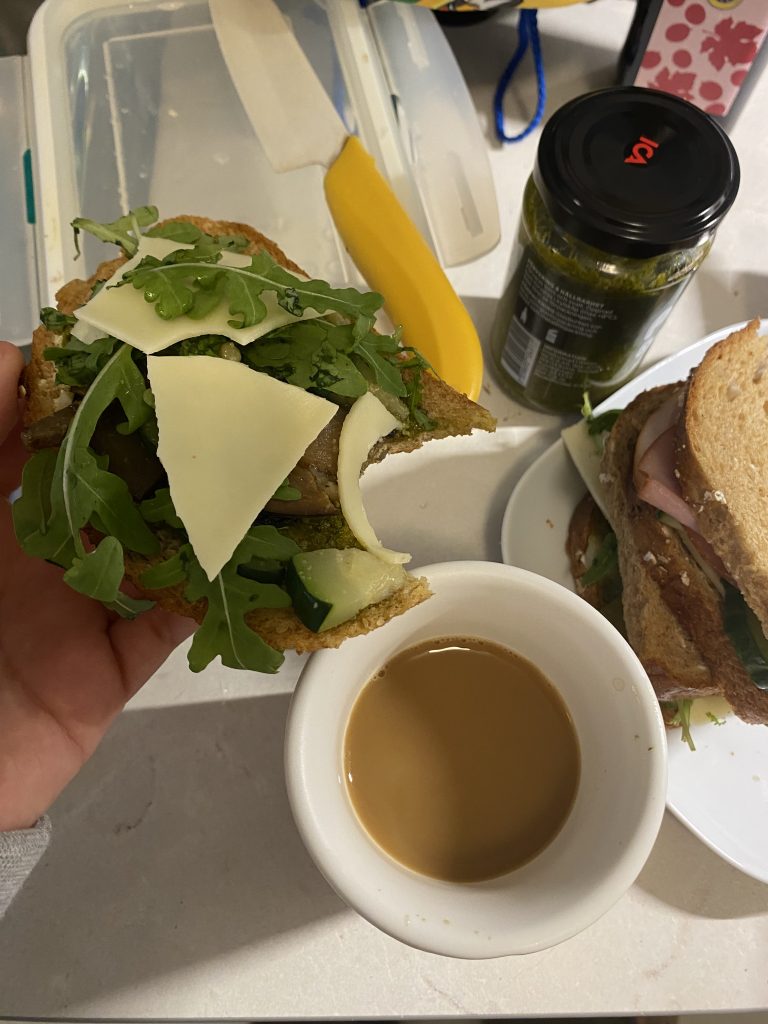
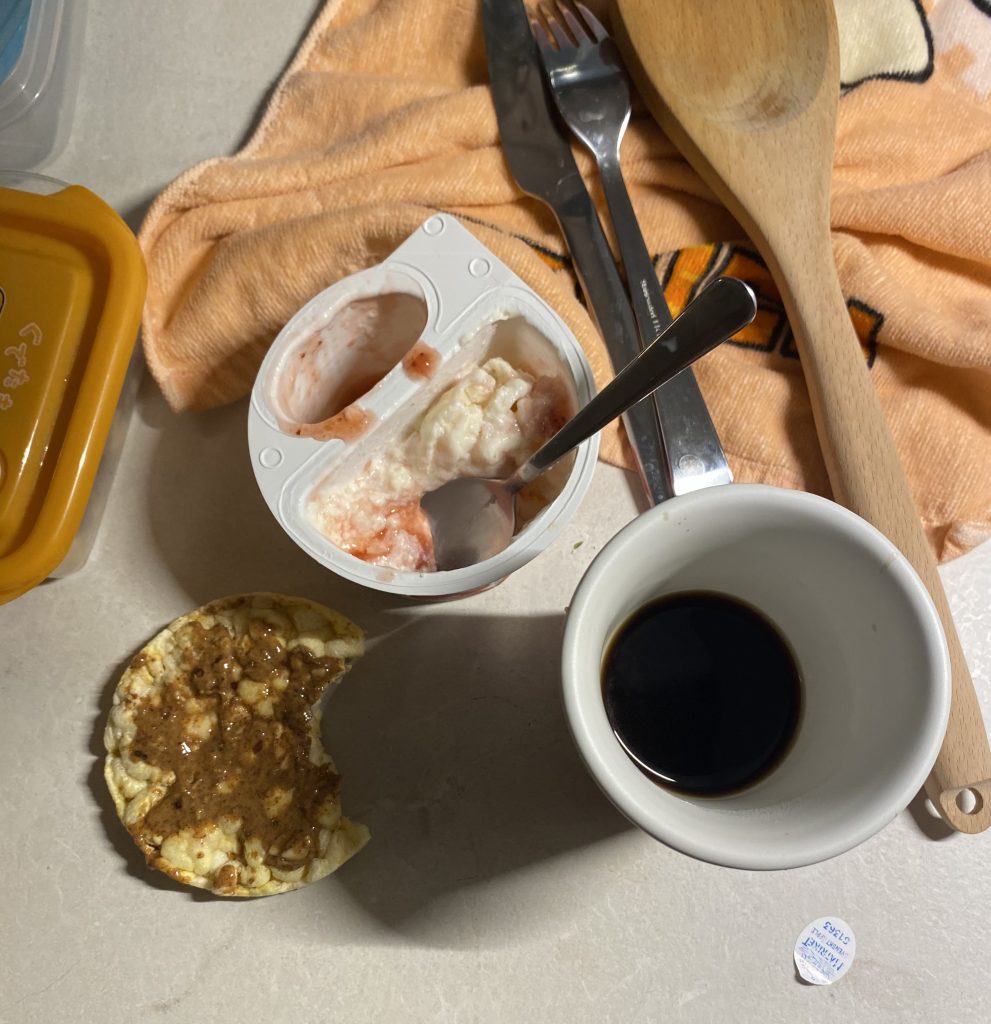
Three weeks into my second semester, I am trying to establish a sustainable morning routine and make sure I eat breakfast. I have also stuck to the habit of making a daily checklist of things to do, to keep track of some academic and personal life-related action items.
Social Life
As a master’s student, I did not expect to get involved in as many social gatherings or events on campus compared to my time as a bachelor’s student due to the older (and arguably slightly mature) crowd I was with. Frankly, I did not really have high expectations of becoming close friends with many of my coursemates either. Since I was ready to make some new connections, I was mildly concerned that I would not be able to do so. But the reality of the situation has proven otherwise!
There are plenty of opportunities to get involved with a myriad of student organizations, with many organizations being welcoming toward masters and/or international students. I have personally enjoyed my time with the Event/Program committee of KI’s Medical Student Union (MF), and was able to join the team earlier this semester.
Perhaps my greatest joy though, has been our friendly, wholesome, (sometimes chaotic) class. I think it is very rare to be able to be in a class where every single person cares for each other and is overall compatible. Truly, I feel lucky to have become close friends with many of them. We have fikas during class, celebrate after every course is completed, and spend time with each other pretty frequently outside the classroom. This now makes up a good portion of my social life! So if you are concerned about connecting with new friends as a master’s student, fear not 🙂
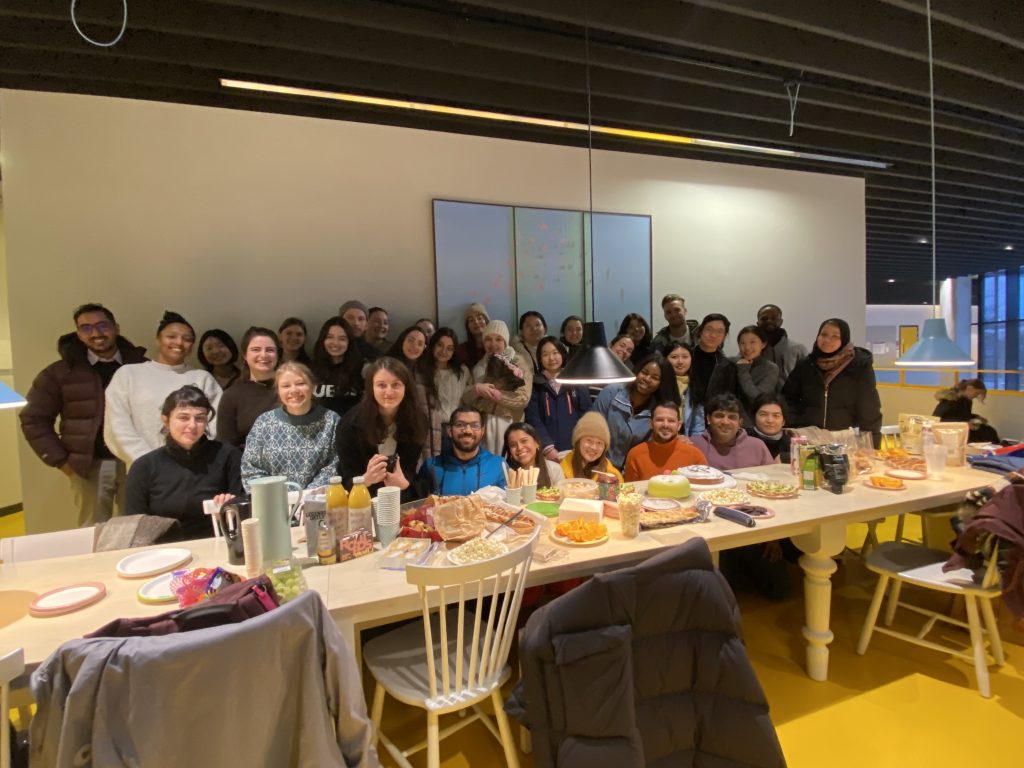
As a final remark, not everything measures up to our expectations (for better or for worse) and we are far from perfect “model” students in many instances. For those applying to KI, I hope that some of these unfiltered moments have made the idea of studying at KI as a Global master’s student a little less nerve-wracking. Best of luck with your application!

Risa-Public Health Sciences
Hej! I am Risa, a Japanese Master's student in Public Health Sciences starting my studies in 2023 at Karolinska Institutet. Having been interested in the multidisciplinary, globally applicative, and cooperative nature of the public health field, paired with my familiarity with KI’s global reputation, I’ve always had the desire to study at KI. I enjoy curating playlists, petting cats, and going on scenic walks around Stockholm in my free time.

0 comments